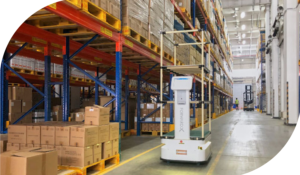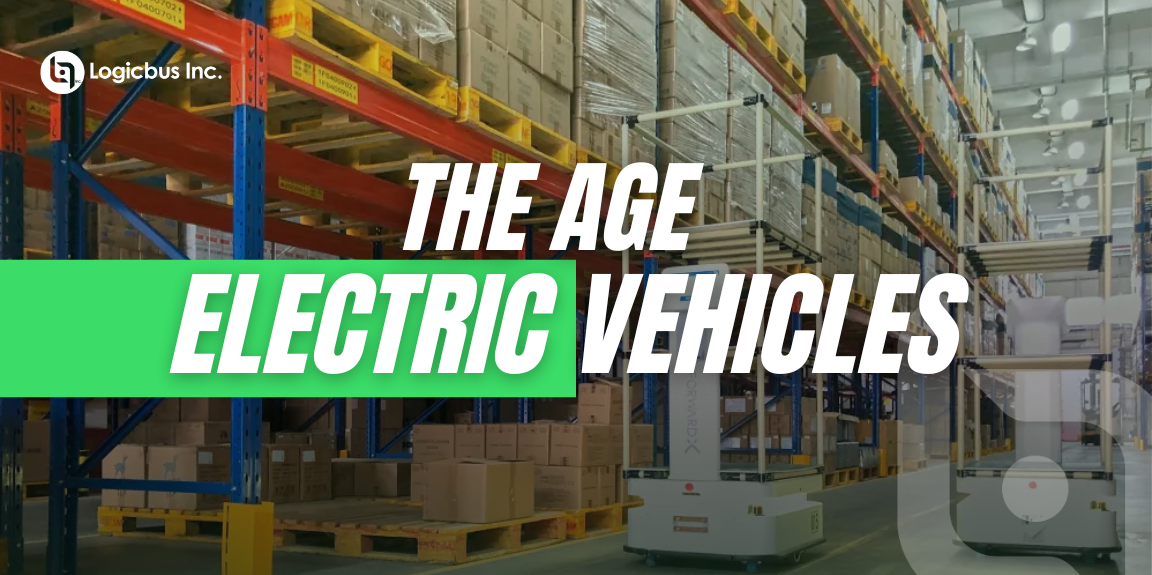The Transition to Electric Vehicles
The automotive manufacturing industry has undergone significant transformations in recent years, especially with the growing emphasis on electric vehicle (EV) production. Bloomberg New Energy Finance predicts that by 2040, EVs will account for 57% of all passenger car sales globally. As governments around the world implement stricter emissions regulations and offer incentives to encourage EV adoption, the automotive industry is witnessing a profound transformation that will shape the future of mobility.
Changes on the Plant Floor
This change not only aligns with environmental goals, but also presents new opportunities for innovation and market growth. From the perspective of assembly and manufacturing plants, the transition to electric vehicles has several implications.
As more automakers commit to electric fleets and unveil major EV development plans, assembly plants must adapt their processes and equipment to handle the increased complexity of EV manufacturing. Moving from internal combustion engine (ICE) vehicle production to EVs requires a complete overhaul of assembly processes due to significant differences in design and construction.
Assembly plants may need to invest in new production lines, tooling and technology to meet the unique standards and requirements of EVs. Prioritizing agility and efficiency becomes crucial to accommodate the shortest time from information gathering to product placement in EVs. Optimizing supply chains and manufacturing processes will be vital to meet accelerated production schedules.
Resilience in manufacturing means being agile, able to respond and adapt quickly to change. Assembly plants must be able to adjust quickly to fluctuations in demand, market conditions, supply lines and labor availability. With the growing demand for EVs, assembly plants will need to increase production, which could lead to increased hiring and expansion of manufacturing facilities. Therefore, any plan for company processes must carefully navigate the scaling process to achieve the ability to manufacture high-quality products on a large scale.
Safety Remains Paramount
Automakers must adhere to strict safety standards to avoid incurring penalties or facing legal consequences, especially when implementing automation solutions. The need for stringent safety measures in automotive manufacturing stems from multiple compelling reasons. Working in an industry that relies heavily on heavy machinery, equipment and materials, automotive manufacturers face significant risks that can jeopardize worker safety if not managed effectively. The presence of AMRs working alongside human workers requires ensuring maximum safety.
The weight and size of automotive components, such as engines or chassis, require the implementation of strict safety protocols during the handling, storage and assembly processes to prevent potential accidents. In addition, the intricate and high-speed nature of automotive manufacturing operations amplifies the importance of implementing stringent safety requirements. Assembly lines and production processes comprise a network of interconnected machines, automation systems and moving parts. Unplanned downtime caused by failures or safety concerns can have a significant impact on production schedules, leading to delays and financial losses.
By incorporating reliable automation systems, the likelihood of equipment failure is minimized, ensuring consistent uptime. This promotes a smooth production flow, allowing manufacturers to meet their production targets efficiently. Therefore, integrating reliable automation solutions equipped with robust safety features becomes crucial to effectively mitigate the associated risks.

ForwardX’s AMR Automotive Solution
Safe and Reliable
ForwardX’s innovative use of computer vision sensor fusion navigation and LiDAR in its AMRs stands out as one of the most advanced and effective intralogistics technical solutions for various critical points in the automotive industry. The unique capabilities of ForwardX’s AMRs to identify and classify obstacles offer significant benefits, especially with regard to safety when working alongside human workers.
The unmatched environmental sensing capabilities of ForwardX AMRs play a key role in protecting the manufacturing process. EU CE-MD certified, ForwardX AMRs can safely handle and transport diverse materials up to 2500 kg, helping to achieve a 6 sigma lean process and ensuring Just-in-Time (JIT) delivery. They can autonomously plan alternative routes, avoiding any obstructions that may pose a risk in complex and dynamic environments. This adaptability helps create a safer working environment by minimizing the potential for human-robot incidents.
With an average uptime of over 99% at customer sites, the application of ForwardX robots in automotive manufacturing and assembly lines, with their advanced sensing and adaptive strategies, adds an additional layer of safety without compromising efficiency and productivity.
Flexible and Scalable
In addition, the strong vision perception capability is indispensable for optimizing operations in complex environments. It enables the system to efficiently navigate through intricate production lines, avoiding collisions and interruptions, leading to greater production efficiency and increased factory floor efficiency. It eliminates reliance on magnetic stripes and 2D codes, which are prone to problems such as derailment, loss of positioning, and high maintenance and aftermarket costs. In addition, it provides greater adaptability to production line changes and enables rapid deployment along with standardized 5S management.
The ForwardX system effortlessly accommodates the integration of AMRs, enabling seamless automation expansion. This scalability feature empowers companies to improve their operational efficiency by conveniently increasing the number of robots deployed, adapting to changing demands with ease.
End-to-End Solution
ForwardX offers end-to-end AMR transportation management, including material storage, pickup, delivery and production line integration. ForwardX’s f(x) fleet manager can facilitate up to thousands of AMRs per site, seamlessly integrating a wide variety of AMRs, including bilateral drag AMRs, omni-directional AMRs and its stand-alone forklifts.
In addition, the ForwardX solution can seamlessly integrate with the factory’s ERP, MES and WMS software, enabling real-time collection and feedback of logistics and production data. This digital factory management provides a foundation for efficiency improvements through the use of digital twin technology, enabling the digitization of material processes and facilitating the digital transformation of smart factories.
By investing in reliable automation solutions, automakers can reduce the risks associated with accidents, production downtime and financial liabilities, resulting in long-term cost savings.
sales@logicbus.com | support@logicbus.com | +1 619 616 7350 | Start conversation





